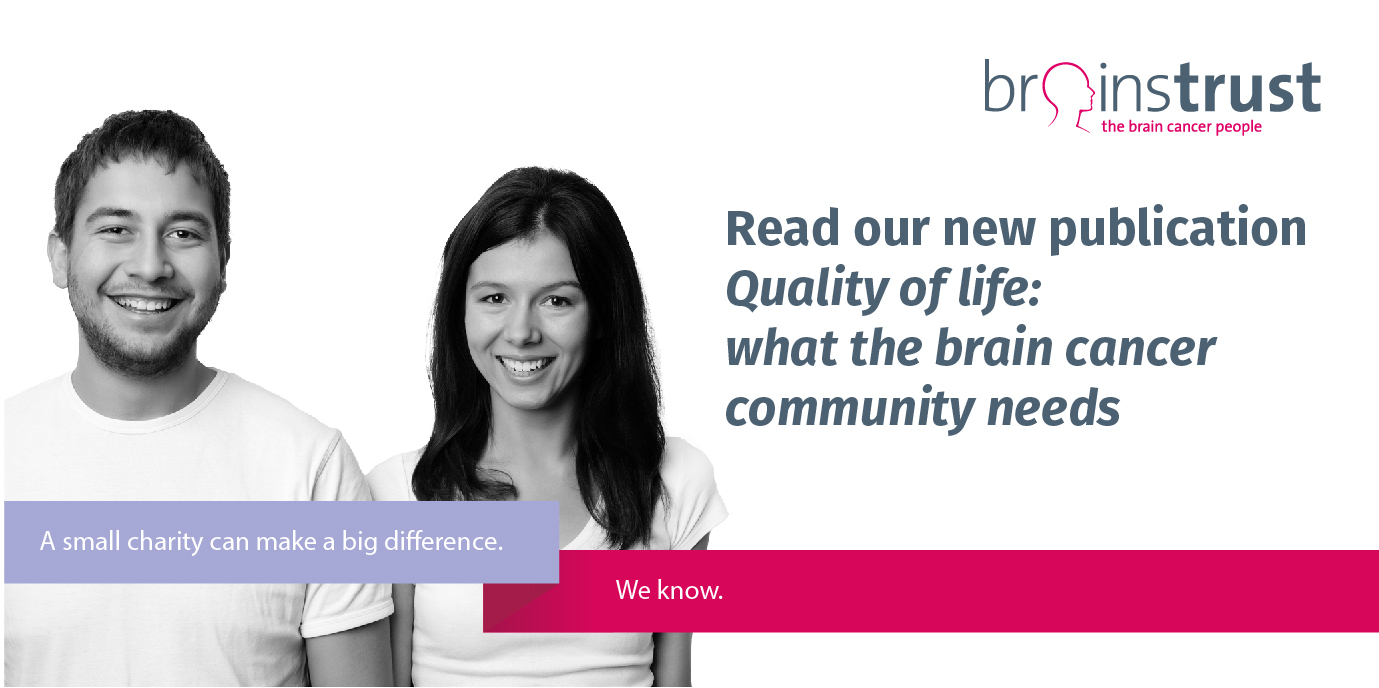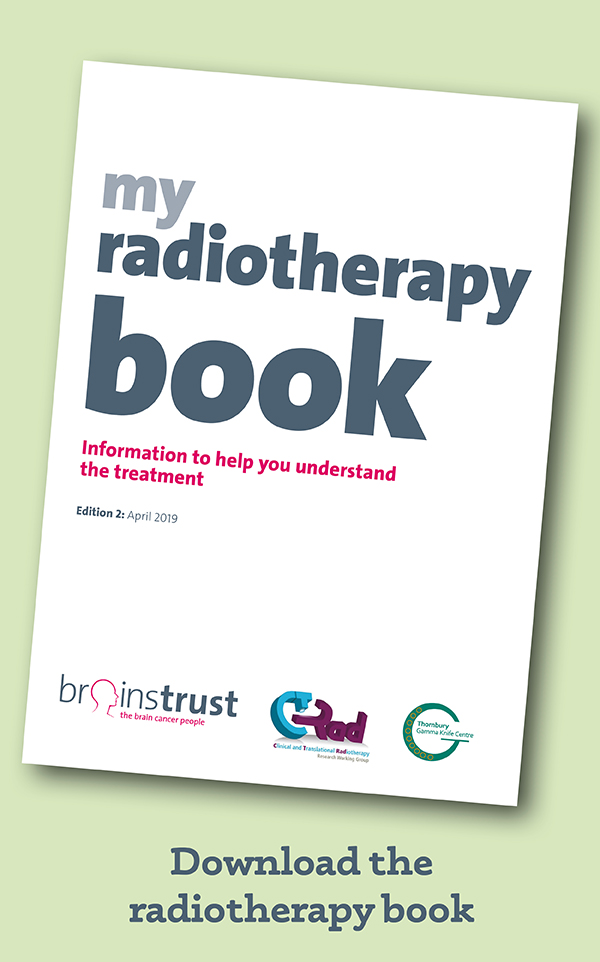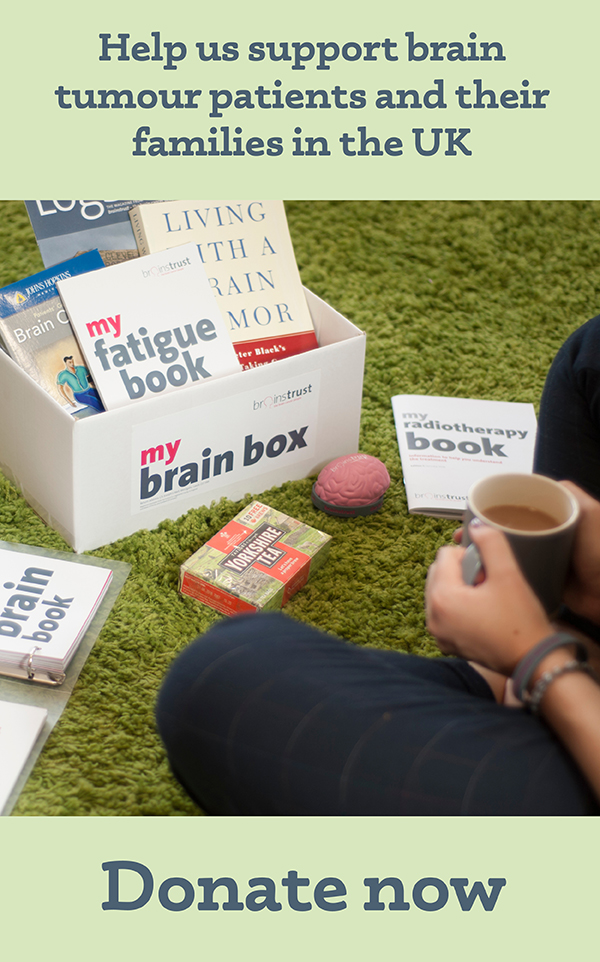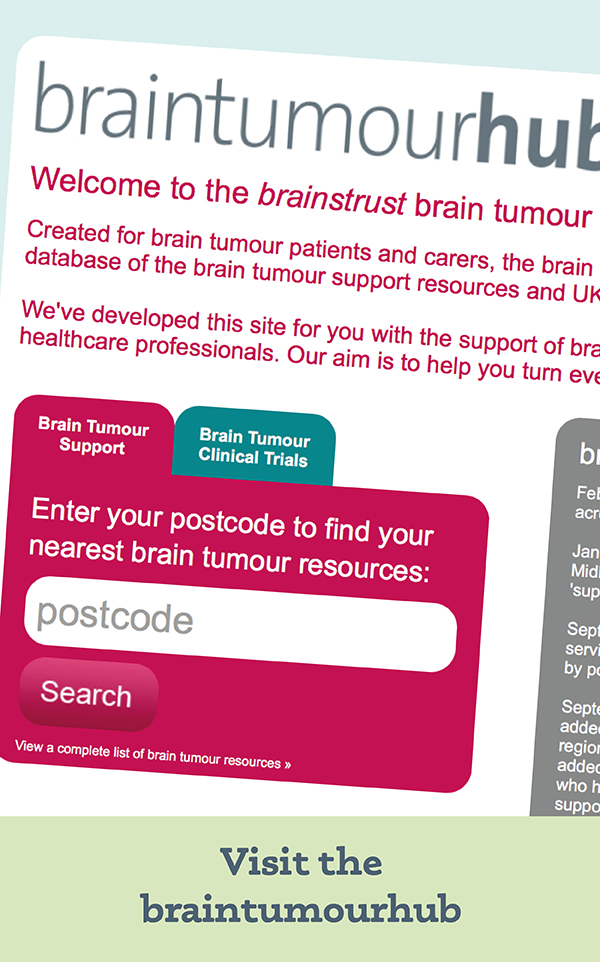Campaigning to make Quality of Life a priority
What is Quality of Life?
We know a brain tumour diagnosis has a significant impact on your life. Because of this, we need to make sure that quality of life is high on everyone’s agenda – yours, clinicians’ and the research agenda. It’s not enough to add quality of life as the last outcome measure to a clinical trial, as if it is an afterthought.
Before you entered this world of brain tumours, you probably considered your quality of life in terms of its contentedness, or richness. It can mean different things to different people.
Now it’s more likely to be focused on your health – this is referred to as health related quality of life (HRQoL). It covers many aspects of your life including your physical, mental and social functioning, and emotional well-being. For you it might centre on symptoms and effects of treatment, about being able to function as well as you can, while getting to grips with this ‘new normal’.
On this page you will find:
What it means to brainstrust
We know that a better quality of life can mean a better outcome. But we also know that people feel lost, confused and isolated – leading to a lower quality of life.
Improvements in quality of life are becoming more important in research. This is crucial – we believe focus on research and treatments must be given to the quality of life someone is living, not just the length.
We know too that an improved quality of life for the brain tumour community means:
- Understanding your illness.
- Exploring options for treatment and for living with the illness – to the best of your ability.
- Sourcing information, knowledge, help and advice.
We’ve recently published a report on neuro-rehabilitation called Quality of life: what the brain cancer community needs. You’ve helped us identify the key gaps in how neuro-rehabilitation is being delivered and we’ve proposed changes, putting you more in control of recovery and resulting in better outcomes. We’re building resources to address the specific challenges you live with, such as fatigue, personality changes and how you want better conversations with your healthcare team.
You’ve helped us to identify what’s needed to improve your quality of life, and we’re meeting your needs.
We want to understand and raise awareness of real patient and carer issues. Click here to find out how you can help us help you.
How you can get involved
Together we can make sure that quality of life is not just our priority, but everyone’s.
There are four ways you can get involved.
- Share with us your experiences about quality of life.
Good or bad, we need to know. You can email hello@brainstrust.org.uk, pop a post it on our Share Aware pinboard, pick up the phone or drop us a line. Talk with us. - Ask your clinicians about quality of life.
Do so when talking about your treatment and clinical trials. Ask how these things might impact on you and what you should expect. Tell them it is important to you. - Tell them about brainstrust
Tell them about how we can help you and your clinical team achieve a better quality of life. - Help us to provide resources that ensure everyone has a good quality of life
This includes patients and their carers. Hold a tea party, ask a friend to run a marathon or just make a donation. Everything helps us to help you.
To see how we can help you now, visit our report launch page and to see how we’re working with leading clinicians, NHS bodies and researchers, visit our Clinical Research page.












